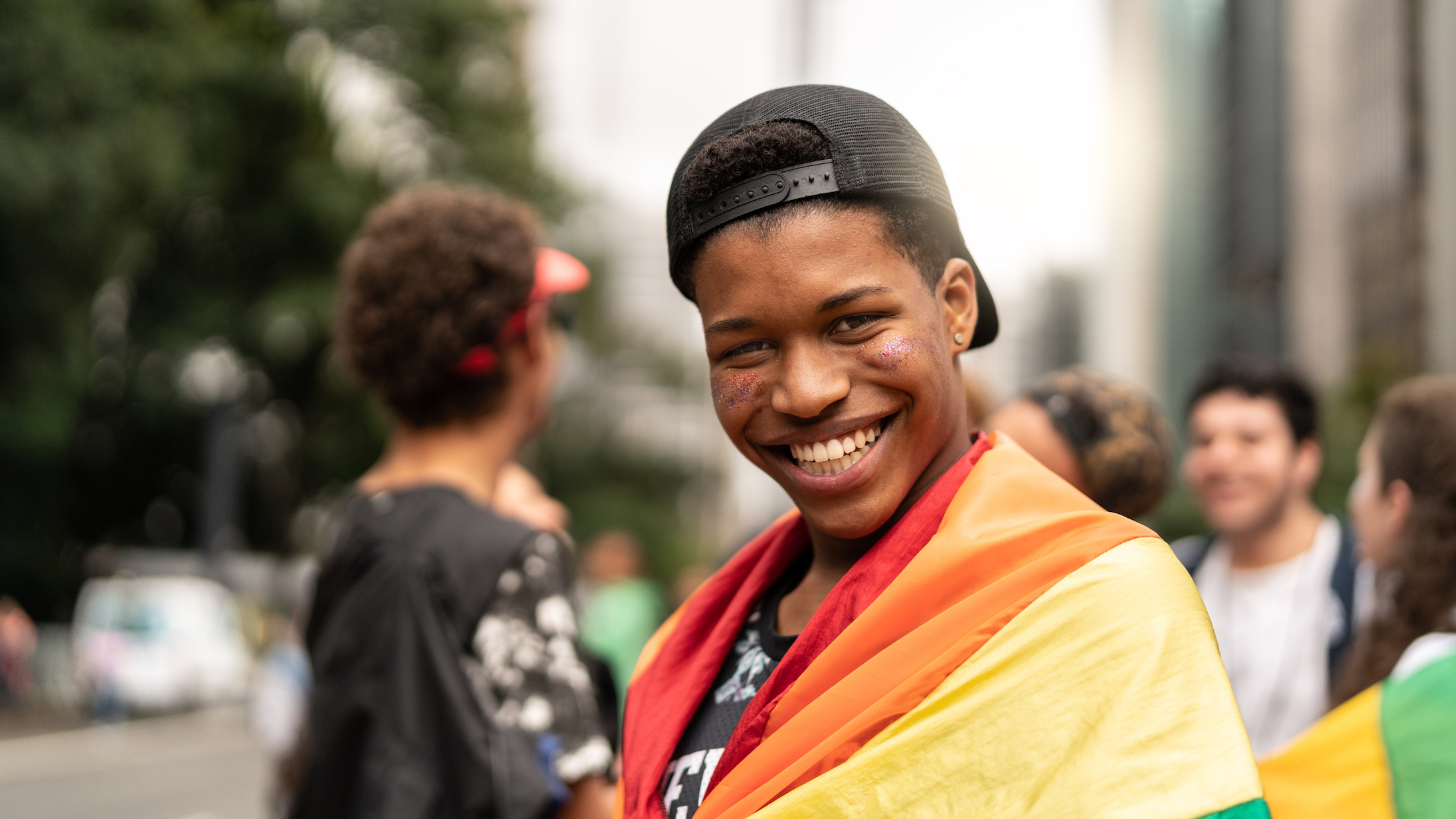
It’s always helpful to remind parents how to react if their child comes out as part of the LGBTQ+ community. It should go without saying that our love and support is imperative. But we may be worried about saying or doing the wrong thing. So here are 16 ways parents can take this news in stride and be there for their children.
It’s a special thing to be trusted enough by a kid for them to share something like this, and we should react accordingly.
More from CafeMom: Suicide Prevention Resources for Parents of LGBTQ+ Kids
Remind them that they're loved.

Coming out can be scary for members of the LGBTQ+ community (like myself) because we truly do not know how a parent may react. So, first and foremost, parents should remind their child that they’re loved. Nothing they can say about their identity will change that.
It’s our job as parents to love our child above all else. Reacting negatively will not make them not be gay; it will just push them away and cause them immense hurt.
Hug them.
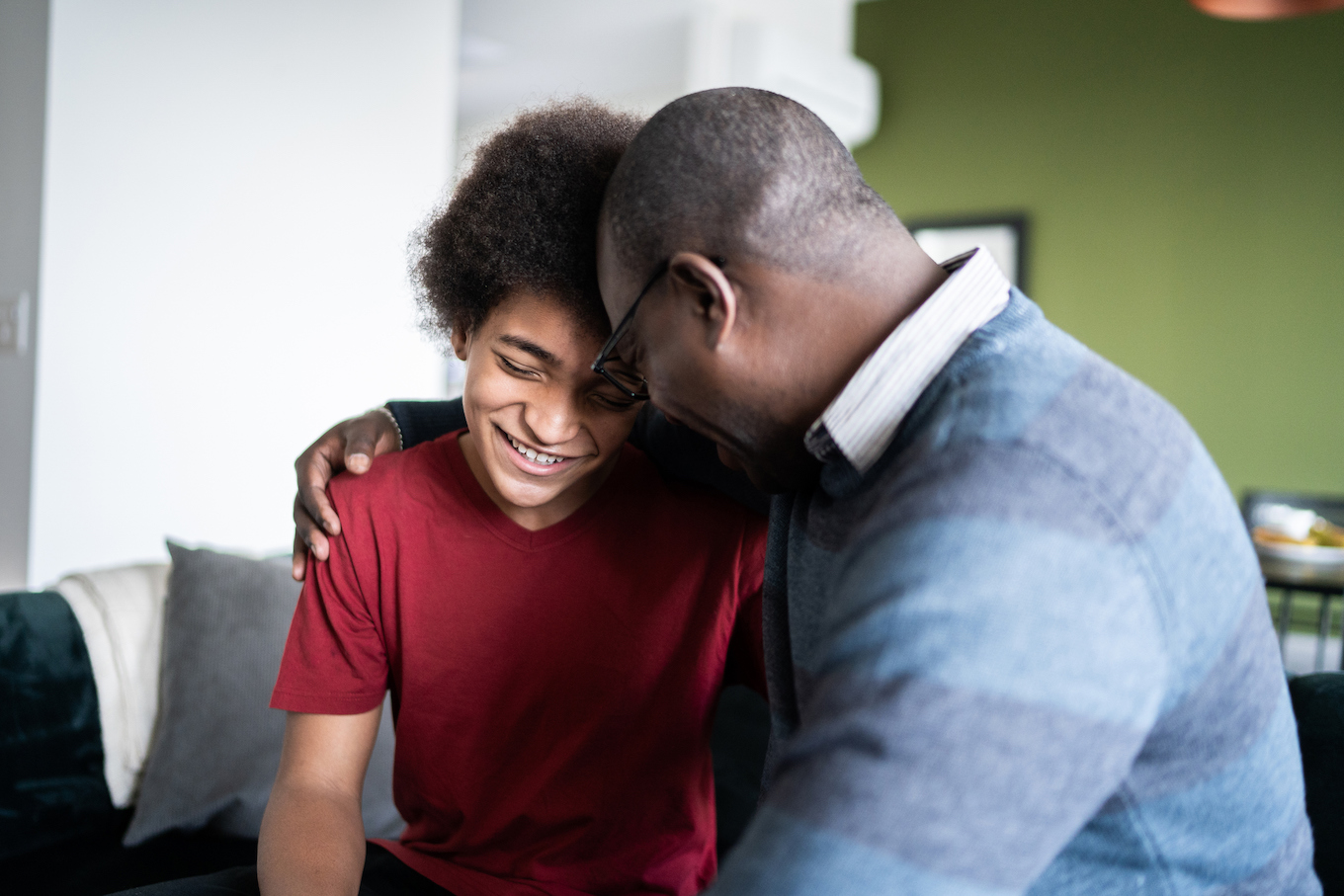
Kevin Naulls wrote about coming out to his parents in a CBC Parents article. And one piece of advice really sticks out: “Hug them if you can’t find the words,” Kevin wrote.
It’s understandable that it might be a lot for a parent to take in. So if we can’t find the right words or we aren’t sure what to say, we can still convey that theme of love through a hug. Hugs can say so much.
Provide a safe space well before.

As The Trevor Project noted in its Coming Out Handbook, many children will “test the waters” before officially coming out to see how someone might react. Perhaps they’ll ask how we feel about a gay celebrity or they’ll take note of how we speak about LGBTQ+ people and issues.
Whether we suspect our child might be gay or not, we should be providing a safe space long before any coming out conversation. They should grow up knowing that we are understanding and accepting.
More from CafeMom: What 16 Young LGBTQIA+ Adults Wish Their Parents Had Known & Done Differently
Do the work.

We might have a lot of questions about the LGBTQ+ community and experience, especially if we can’t relate ourselves, but it is not our child’s job to answer these questions for us. We can do our own research on websites like The Trevor Project, which states in its coming out handbook that “it’s okay [for the child] not to have all the answers; it is not your job to be the expert on your identities.”
The LGBTQ+ support organization PFLAG is another great resource for parents to explore for guidance.
Prioritize their comfort.
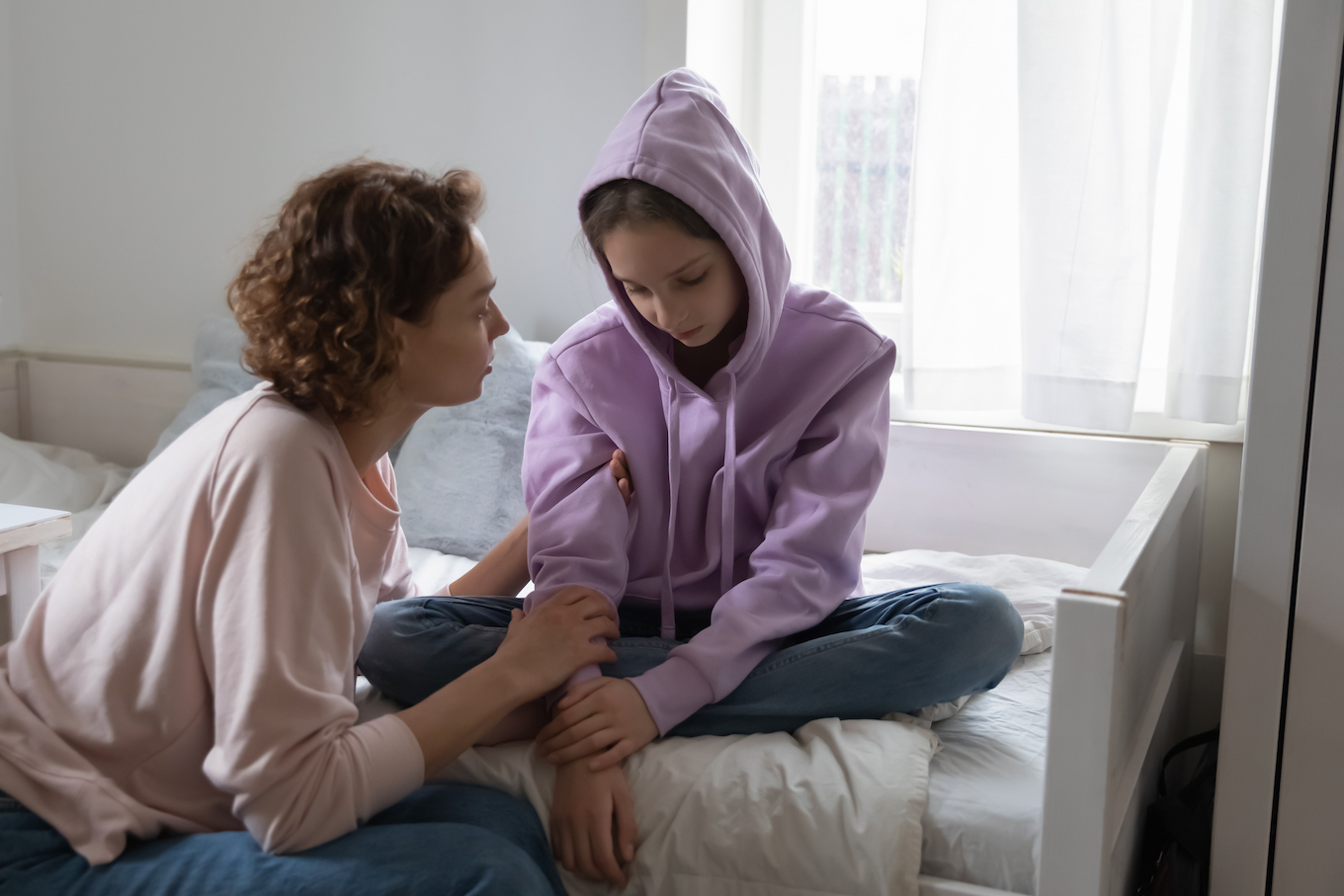
Spaces that might be safe for straight people can sometimes feel very overwhelming to the LGBTQ+ community. This can include places like churches, conservative relatives’ homes, etc. Parents should take their child’s side in these scenarios. As a writer for Affinity magazine shared, “Forcing me to go somewhere or be around someone that I don’t want to be around makes me feel like you don’t care about my feelings of safety or my level of comfort.”
Let them be who they are.

The same Affinity magazine writer also spoke about how it was important to them that their parents not censor them for others’ comfort. “Introducing my partner as my ‘friend’ is horribly invalidating,” the writer shared. “If you have an LGBTQ+ family member, but still have to spell the word ‘gay’ in front of a sibling or cousin, then you are censoring me.”
Perhaps we have older family members who aren’t understanding about LGBTQ+ issues, but they should absolutely not dictate how our children get to express themselves.
Don't catastrophize.
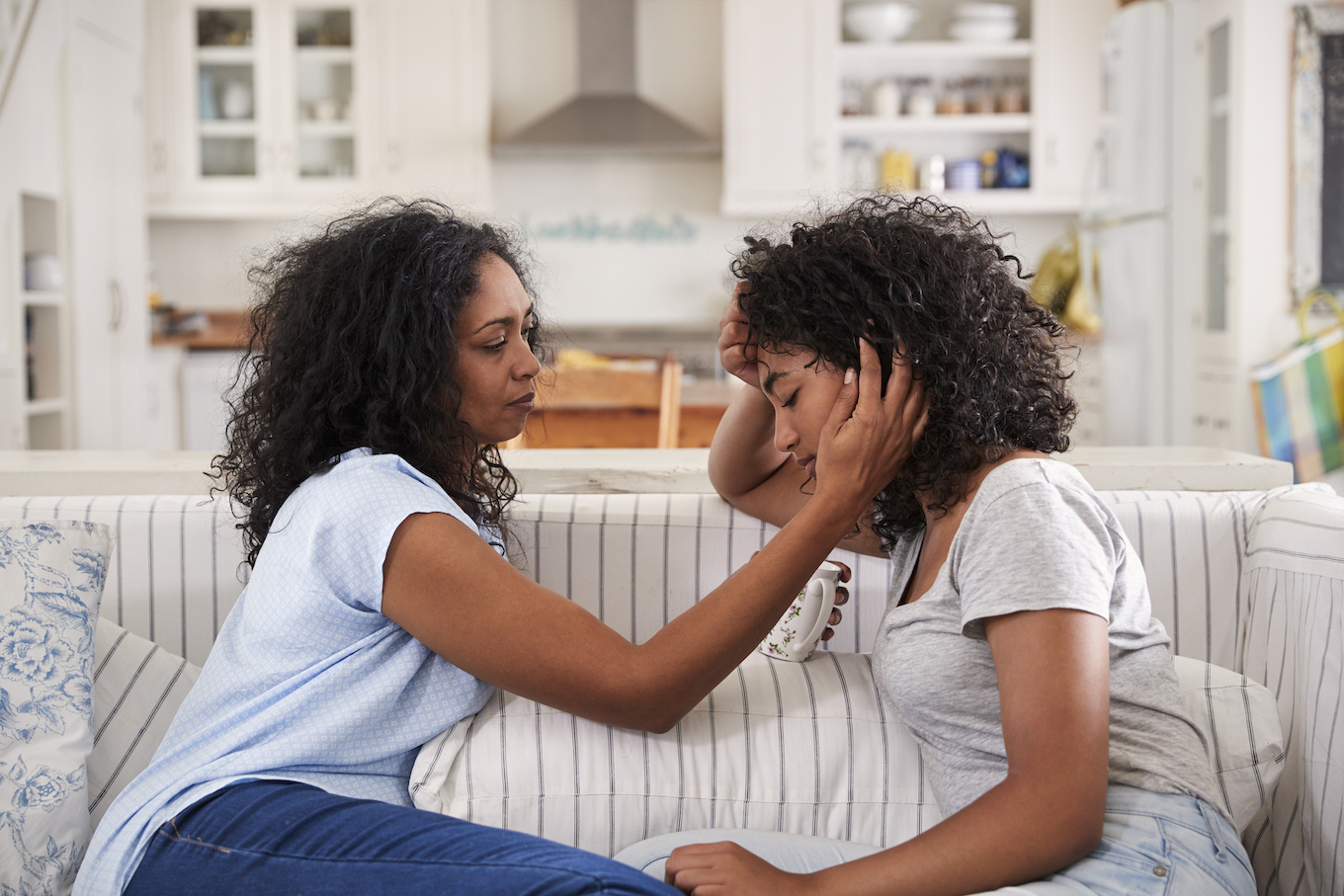
Kevin Naulls also wrote for CBC Parents that his mom and dad jumped straight to the negatives when he came out. They cried and talked about his risk of contracting HIV/AIDS. Jumping straight to the worst-case scenario can make the coming out experience traumatic.
“But because I wasn’t really getting support, and instead being told how I would die (instead of, say, how great it will be to live), it only made me feel even more like who I was was something bad, or to be feared,” Kevin wrote.
Follow the child's lead.

After the child initiates the coming out conversation, parents can follow their lead for how to proceed. Dr. Angela Kade Goepferd of Children’s Minnesota recommended matching their energy. “If your child isn’t making a big deal about coming out, then you don’t make a big deal either. If you can tell they’re anxious, be a little more sensitive or delicate in your response. If they’re excited, be excited,” she said.
Take note of body language.
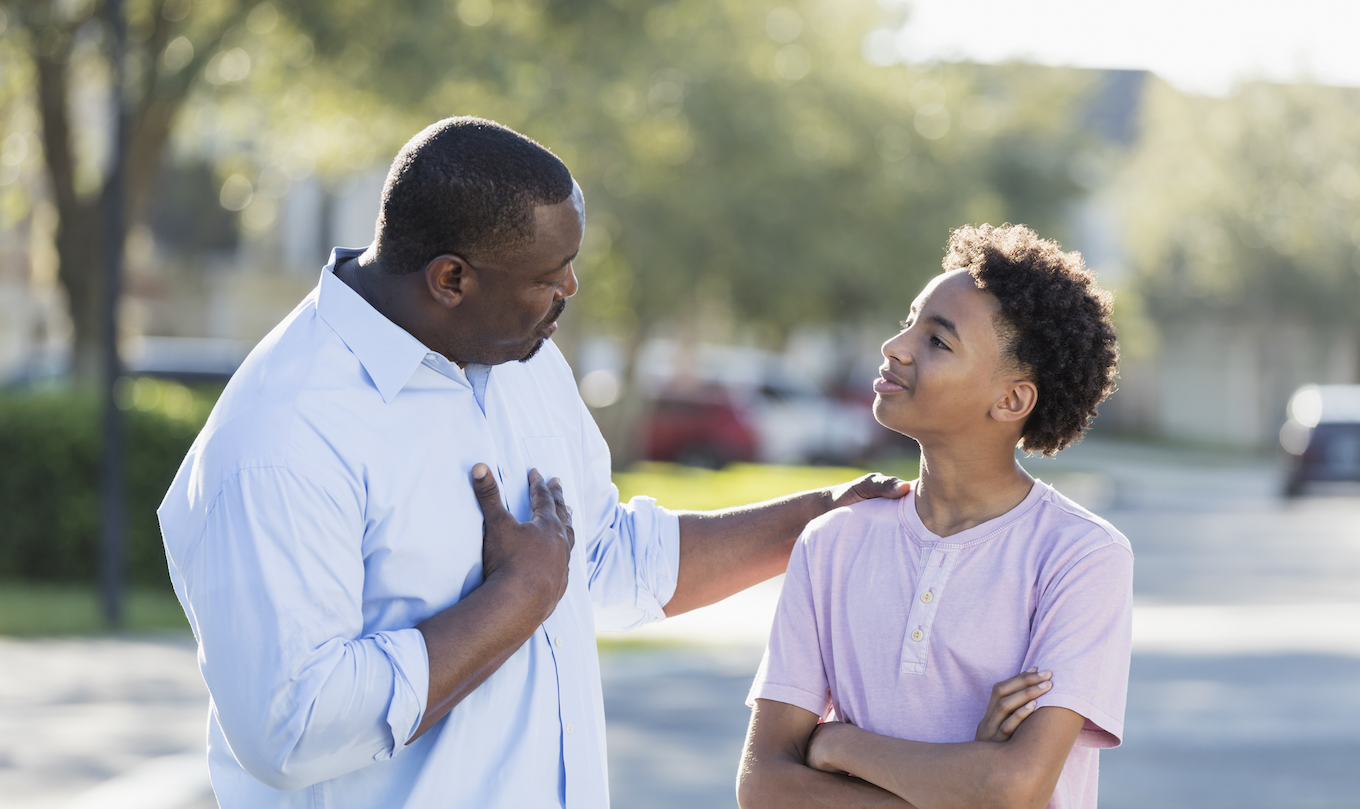
Mental health therapist Nazli Boroshan wrote in a Children’s Hospital of Orange County blog post that a parent’s body language can say a lot. Gestures such as having crossed arms, not looking at the child, fidgeting, etc., can all indicate to a child that the conversation may not be going well.
“Certain expressions such as fear, anger, surprise, and disgust can set the tone for not only the rest of the conversation but possibly the future of your relationship with your child,” Nazli said.
This is where a hug comes in very handy.
Don't just never talk about it again.
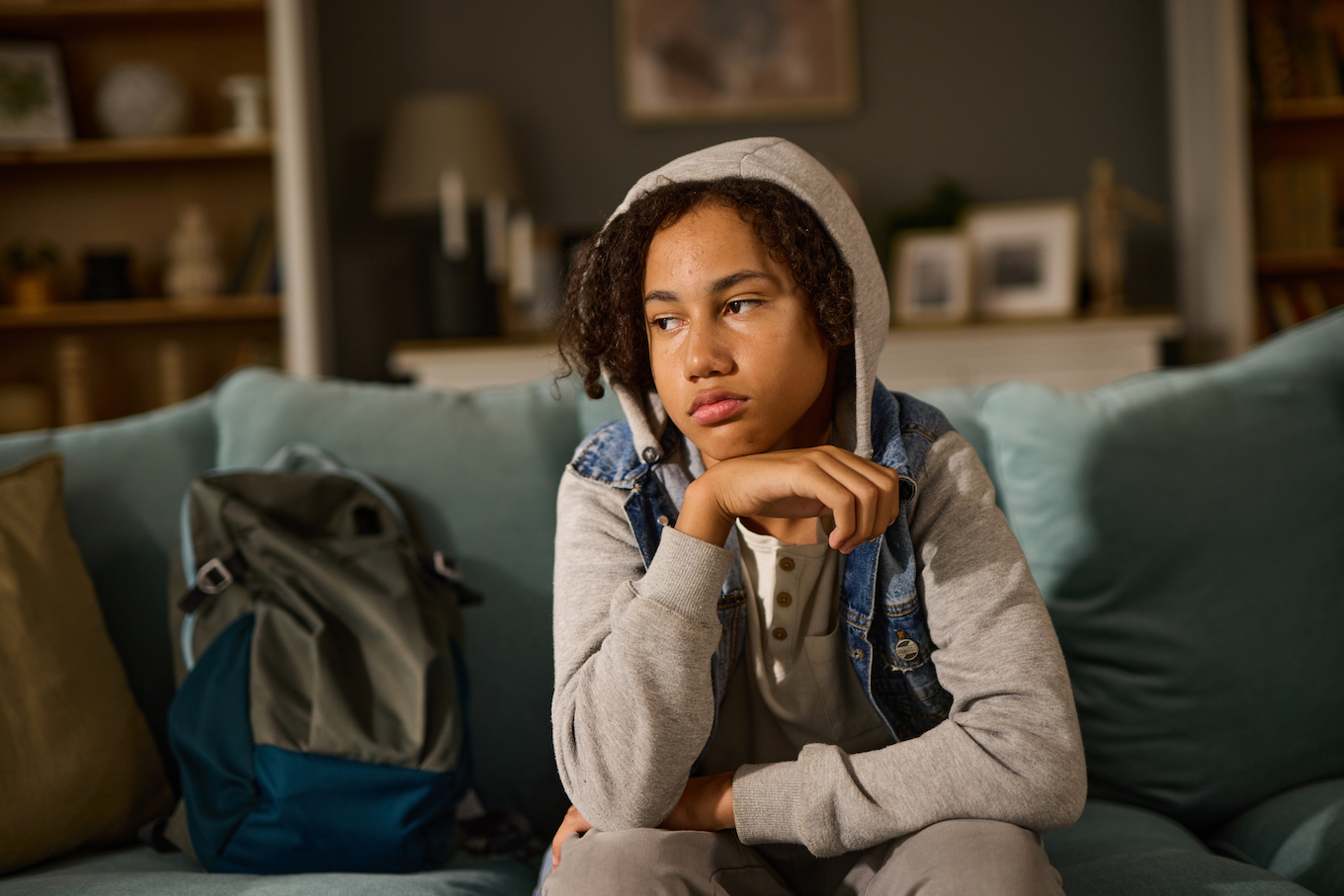
When I came out as bisexual to my mom, I sort of just surprised her by waking her up in the middle of the night and telling her. To be fair, it wasn’t necessarily the best time to have that conversation. But we also then just didn’t really talk about it again afterward.
I wish she had brought it up to me the next day. That way we could have had a more in-depth conversation. Perhaps she just wanted to give me space to speak when I was ready, but a small (and supportive) nudge from her would have helped.
We don't need to be told first.
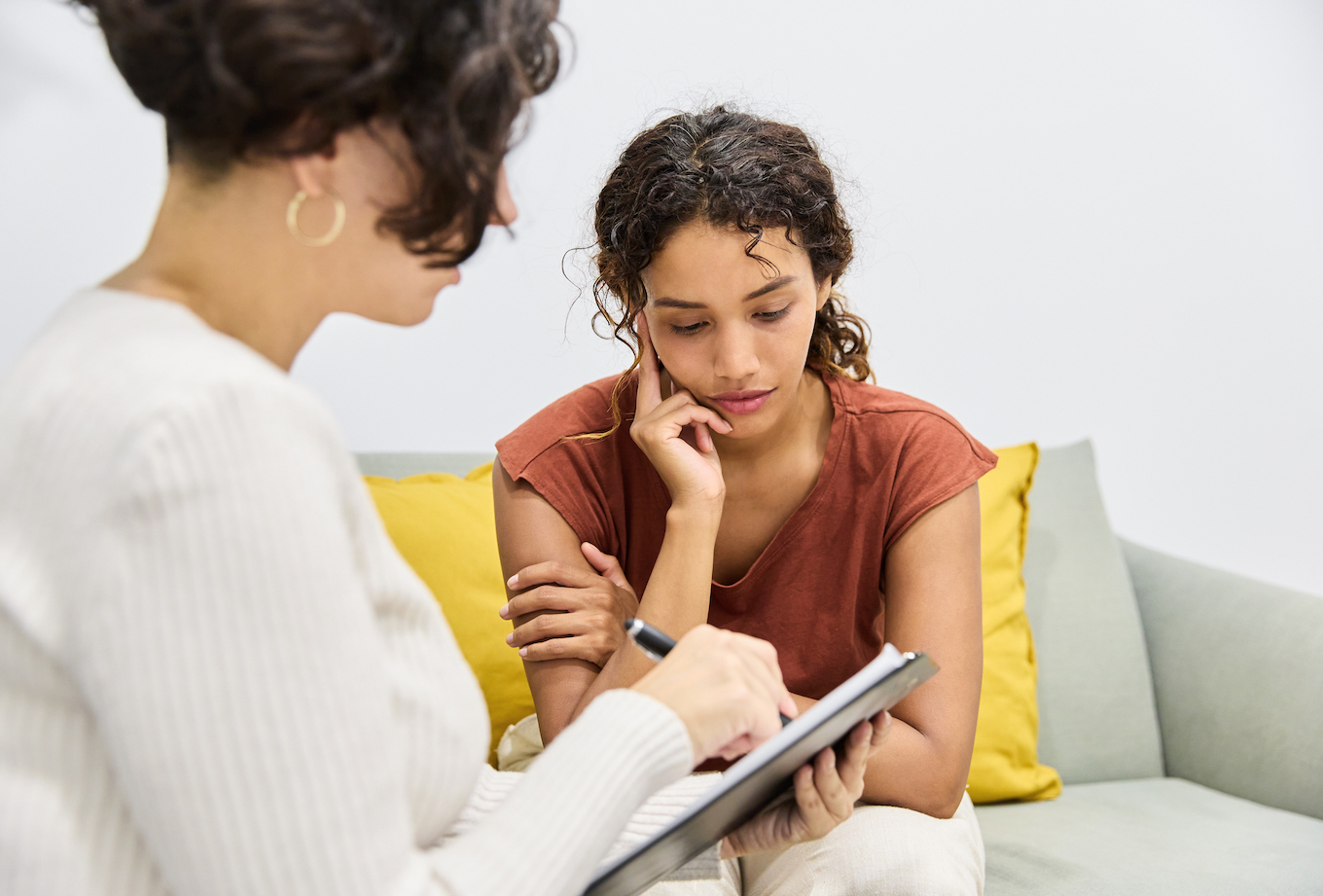
It’s easy as parents to take things personally, but the coming out experience isn’t one of those. If our child tells somebody else before they tell us, that’s OK. As TikToker @heyitstoriiiiii explained, coming out first to someone like a therapist can be helpful. They’re paid to listen and empathize.
Kids may feel a little less pressure opening up to a therapist first. What’s most important is just that they found someone they felt safe to speak about it with.
The specifics don't matter.

When a child first comes out, that’s not the time to hone in on specifics like what exactly their identity is, or how it may affect their life going forward. But as Adiah Siler wrote, according to Yahoo! Life, “In the long run, the specifics don’t matter. All you need to do is love and be there for your child and you will learn how to move forward in this new experience together.”
Respect their story.

When a child comes out, they’re entrusting us with something very sacred to them. It’s their story to tell. We need to respect how and when (and even if) they choose to share that with anybody else. And that includes other family members.
It’s not our place to out them or even to encourage them to come out to anybody else. They’ll get there when they want to.
Nothing has changed.
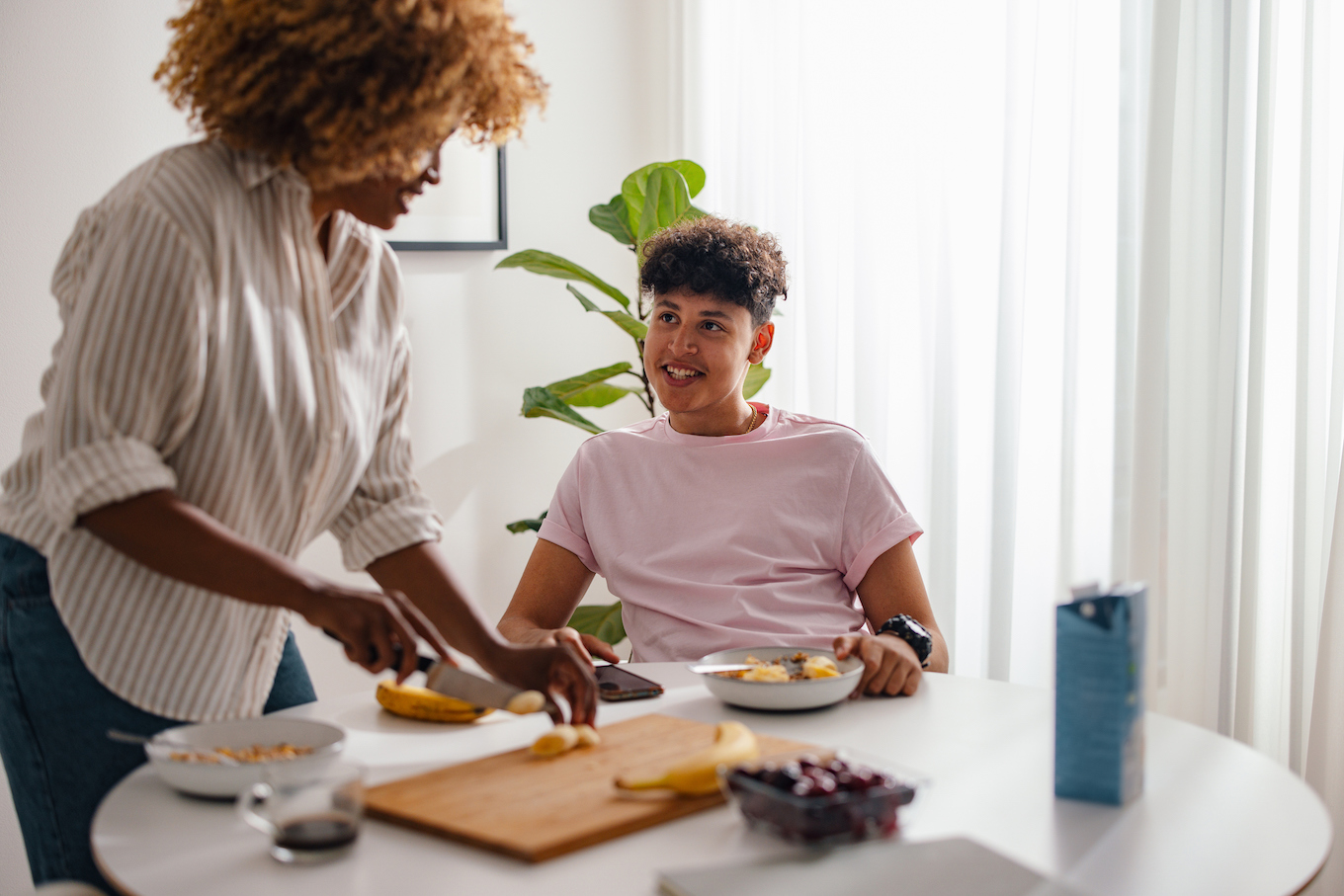
It’s so important to make sure that the day-to-day at home doesn’t change after the child comes out. Never talked to the child about their crushes before? Don’t suddenly start now. Additionally, don’t start buying a ton of rainbow items or going to a bunch of Pride events unless the child is taking the lead on that. We can be supportive while not shifting everyone’s lives so much that the child feels uncomfortable.
Ask how they'd like to be supported.
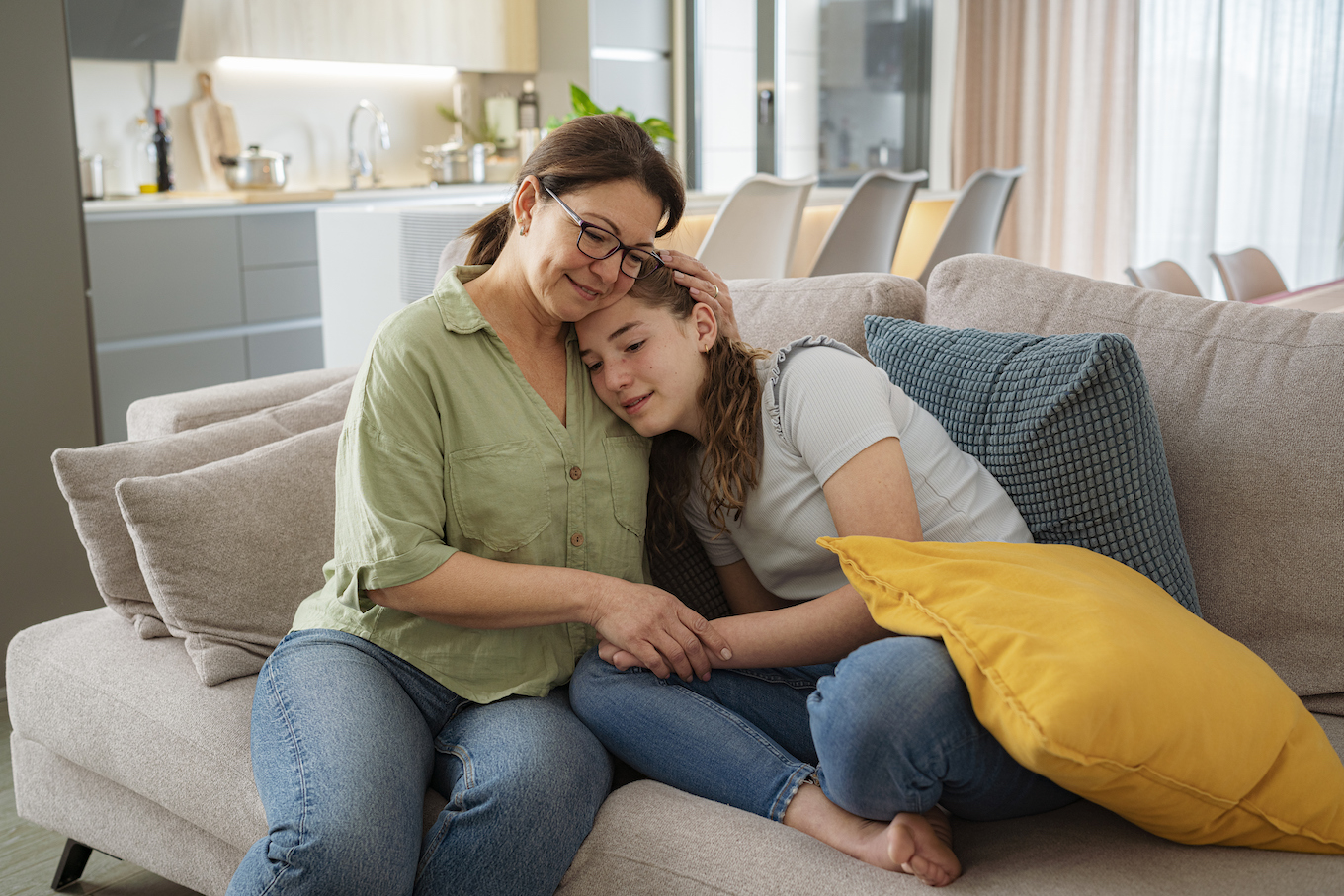
Support looks different for everybody. Maybe one child would appreciate their parents loudly displaying Pride bumper stickers. Perhaps another child would just like to quietly continue on with life. We can’t know unless we ask.
And, in the meantime, Youth Engaged 4 Change recommends being a good ally. We can educate ourselves, support equality policies, and speak up against hate.
Look at the bright side.
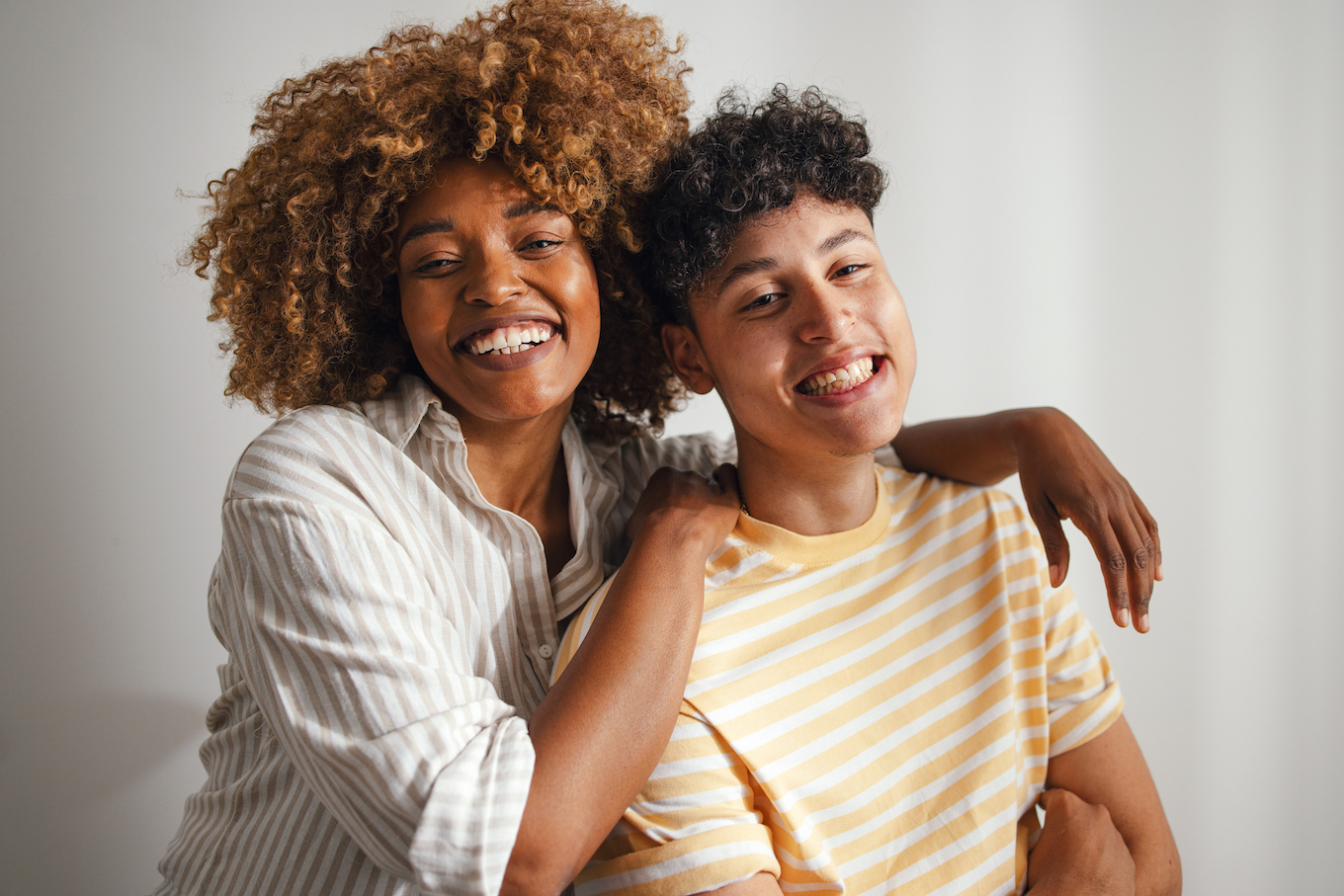
It’s not uncommon for parents to jump to all their fears when a child comes out. It’s understandable to be worried that their kid will get bullied or have a harder path in life. But we can also focus on the positives. As Casey Hoke wrote for TeenLife, parents will likely get to know their child even better once they’ve come out.
“I gained so much trust through the process and while I had to educate them on aspects of identity, we have come far in our relationships. I feel comfortable in discussing anything with them,” Casey wrote.




